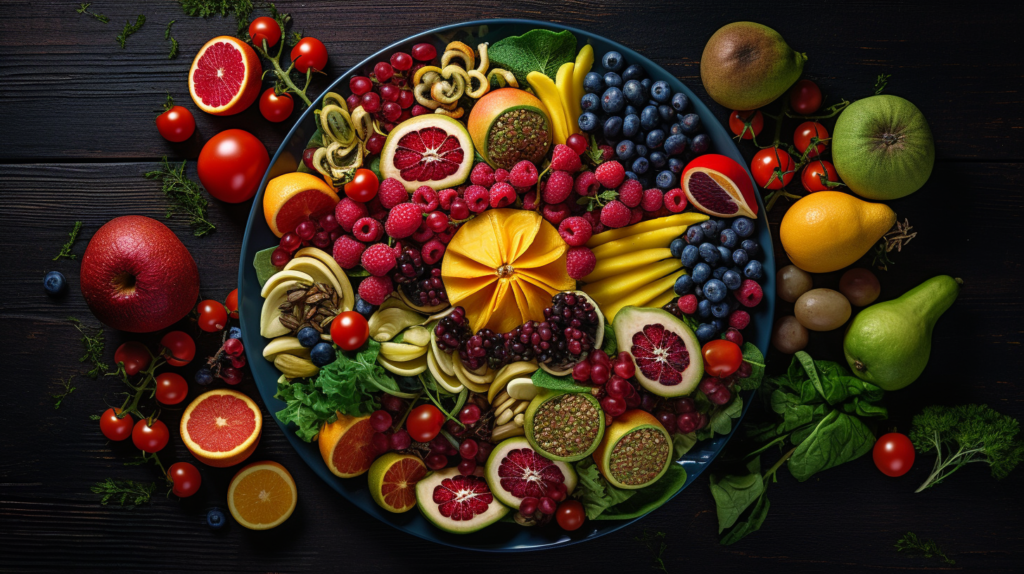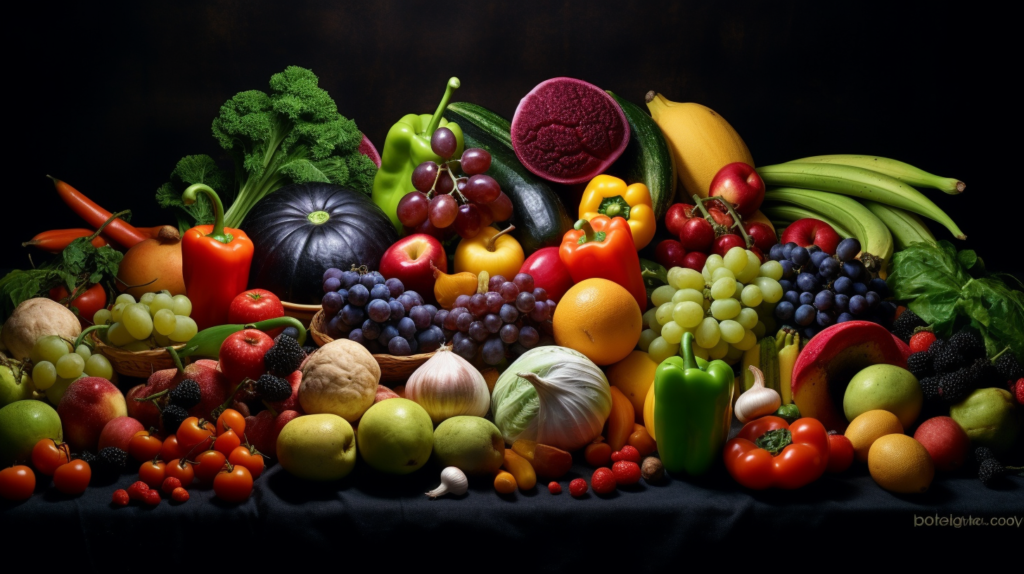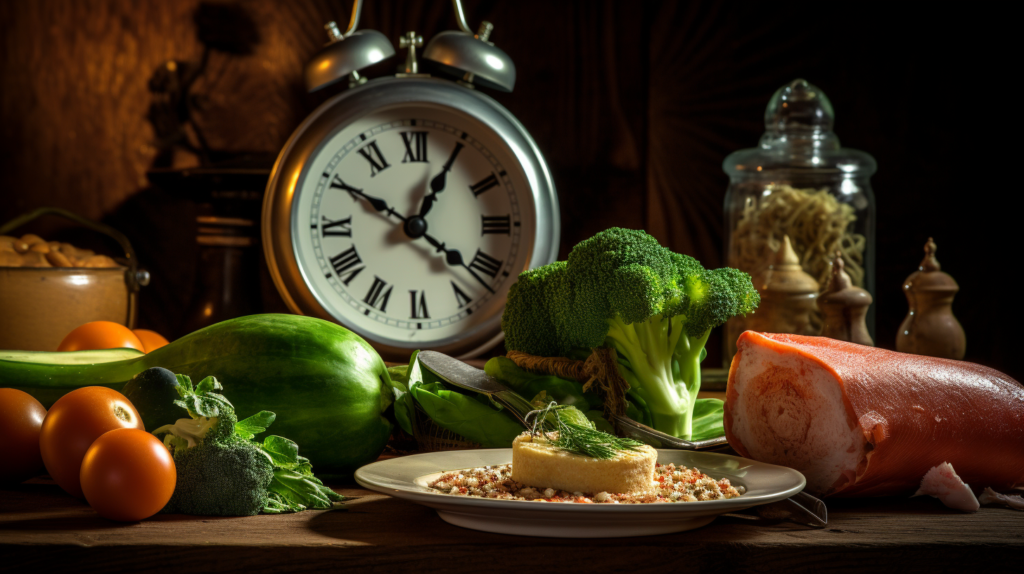The Key to Unlocking Your Wushu Potential
If you’ve always dreamed of becoming the next Jet Li or Donnie Yen, then you’re probably no stranger to the world of Wushu. But what about Wushu nutrition? This Chinese martial art requires not only strength, agility, and discipline but also a fine-tuned diet that can fuel your body for optimal performance and recovery. And just like any other sport, proper nutrition is crucial in helping you achieve your goals. But what should you eat? How much should you eat? And when should you eat it? Fear not! We have all the answers in this comprehensive guide to Wushu nutrition.
A Balanced Diet for Kicking Butt (And Looking Good While Doing It)

First things first – there’s no one-size-fits-all diet for every Wushu practitioner. Different people have different needs based on their age, weight, height, and activity level. However, there are some basic guidelines that apply to everyone (yep, even if you’re an eight-armed octopus attempting to master the art of Wushu).
A well-rounded diet should include a balance of carbohydrates, proteins, fats, vitamins and minerals.
Carbohydrates – The Energy-Giving Powerhouse
Carbohydrates are your body’s primary source of energy – they’re like gasoline in your car’s engine. Without enough carbs in your system, you’ll get tired easily during training sessions and may not recover quickly afterward. Good sources of carbohydrates include whole grains (such as brown rice), fruits, vegetables and legumes.
Protein – The Muscle-Building Machine
Protein is essential for muscle repair and growth after intense Wushu sessions. And since you probably won’t bulk up like the Hulk just from practicing martial arts, you’ll want to make sure to get enough protein in your diet. Lean meats, fish, eggs, dairy products and plant-based protein sources like tofu are all great options.
Fats – The Nutrient Transporter
In moderation, fats can be beneficial in helping your body absorb nutrients and maintain hormone levels. Opt for healthy fats such as avocados, nuts, seeds and olive oil instead of unhealthy fats found in fried foods or pastries.
Vitamins and Minerals – The Cellular Superheroes
Vitamins and minerals play a vital role in maintaining good health, keeping our immune systems strong and enabling our bodies to function properly during exercise. Make sure to incorporate a variety of fruits and vegetables into your diet to ensure you’re getting all the essential vitamins and minerals your body needs.
Don’t Forget the Little Guys – Micronutrients and Antioxidants

While macronutrients like carbohydrates, proteins, and fats usually take center stage in discussions about nutrition, we mustn’t forget the importance of micronutrients and antioxidants. These vital components help support our bodies’ functions at a cellular level, playing crucial roles in maintaining good health and preventing illness.
Micronutrients
Micronutrients are vitamins and minerals that your body needs in small amounts to function optimally. Some important micronutrients for Wushu practitioners include:
– Calcium: Essential for strong bones and teeth, calcium also plays a role in muscle function. Good sources include dairy products, leafy greens, and fortified foods.
– Iron: This mineral is necessary for transporting oxygen around the body. Low iron levels can lead to fatigue and decreased performance. Incorporate lean meats, beans, or fortified cereals into your diet to boost your iron intake.
– Magnesium: This mighty micronutrient helps maintain nerve and muscle function. Nuts, seeds, whole grains, and leafy greens are all excellent sources of magnesium.
Antioxidants
Antioxidants are compounds that help protect your cells from damage caused by free radicals – unstable molecules that can harm cellular structures. Intense exercise can increase free radical production; therefore, it’s essential for athletes like Wushu practitioners to consume antioxidant-rich foods regularly.
Some superstar antioxidants include:
– Vitamin C: Found in citrus fruits, bell peppers, strawberries, and broccoli.
– Vitamin E: Present in nuts, seeds, spinach, avocadoes.
– Beta-carotene: Abundant in sweet potatoes, carrots, spinach.
By incorporating a variety of colorful fruits and vegetables into your diet (think rainbow on your plate!), you’ll ensure you’re getting a wide range of these valuable micronutrients and antioxidants.
Timing Is (Almost) Everything – Eating Around Training Sessions

Knowing what to eat is undoubtedly essential, but understanding when to eat can also make a significant difference in your Wushu performance. Properly timing meals and snacks around training sessions can help boost energy levels, prevent discomfort, and support muscle recovery.
Pre-Training
As mentioned earlier, aim to consume a meal high in carbohydrates about 3-4 hours before training. If that isn’t possible or you’re really crunched for time, opt for a quick snack containing carbs and protein about 30-60 minutes before hitting the dojo.
During Training
For most Wushu practitioners, water should be sufficient to keep you hydrated during practice sessions. However, if your training lasts more than an hour or takes place in hot conditions, consider consuming an electrolyte drink to replenish lost nutrients.
Post-Training
As soon as possible after training (ideally within 30 minutes to an hour), enjoy a snack or meal containing both carbohydrates and protein to promote muscle recovery.
Listen To Your Body – Adjusting Your Diet As Needed
While following these general nutrition guidelines is certainly helpful for Wushu practitioners, remember that everyone’s body is unique – what works for one person might not work for another. It’s important to listen to your body and adjust your diet based on how you feel during training sessions and throughout the day. If you’re consistently feeling sluggish or hungry despite following these tips, it might be time to tweak your food choices or portion sizes.

Remember that staying flexible with your approach to nutrition is key – as your training schedule changes or as you progress in the sport of Wushu, so too may your nutritional needs.
Pre-Training Fuel: What to Eat Before You Practice
Now that we’ve covered the basics of a balanced diet let’s get into the nitty-gritty – what should you eat before hitting the dojo? Eating a meal high in carbohydrates about 3-4 hours before training will help provide sustained energy throughout practice. This meal should also contain some lean protein for muscle support but should be lower in fat, as fat takes longer to digest and can cause discomfort during exercise.
On-The-Go Snack Ideas:
If you’re always on the run (literally) or don’t have time for a full-blown meal before training, opt for quick snacks that still pack an energy punch:
- Rice cakes with almond butter
- Greek yogurt topped with granola
- Banana with peanut butter
Post-Training Nutrition: Rebuilding and Repairing Your Muscles

After an intense Wushu session, your body needs fuel to recover and repair muscles. Within 30 minutes to an hour after training, aim to consume a snack or meal that includes both carbohydrates and protein. This combo helps replenish glycogen stores in your muscles while also providing the necessary building blocks for muscle repair.
Recovery Meal Ideas:
- Turkey and avocado wrap with whole-grain tortilla
- Chicken or tofu stir-fry with brown rice
- Protein-packed smoothie with berries, spinach, and Greek yogurt
Hydrate, Hydrate, Hydrate!

Staying properly hydrated is essential for optimal performance in any sport – especially Wushu. Dehydration can lead to fatigue, decreased coordination, and cramping (no one wants to perform a high kick only to be stopped by a pesky leg cramp). Make sure to drink water throughout the day and during practice sessions. If you’re training for more than an hour or in hot conditions, consider adding electrolyte drinks into your hydration routine.
The Journey Continues – Keep Learning & Growing
Embarking on the path of Wushu is a lifelong journey filled with dedication, discipline, and growth. By continuously learning about how nutrition can support your performance and recovery, you’ll be well-equipped to reach your full potential as a martial artist.
Take what you’ve learned here and apply it to your daily life – but also remain open to new information and strategies that may help you continue to evolve as a Wushu practitioner. After all, the true essence of martial arts lies not only in mastering physical techniques but also in cultivating mental strength and adaptability.
So go ahead, embrace the wisdom of Wushu nutrition, and watch as your body becomes an even more formidable force on the mat. Your Kung-Fu master’s journey has only just begun!

